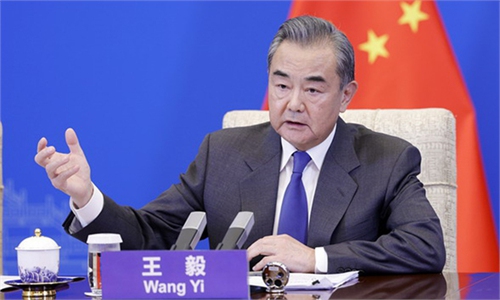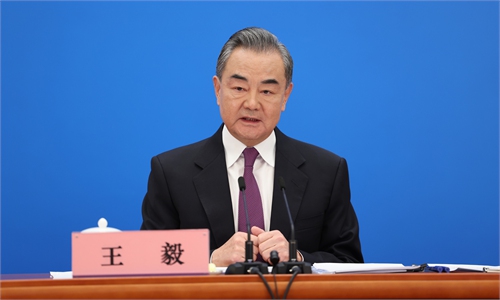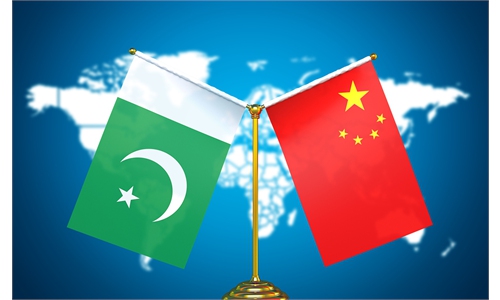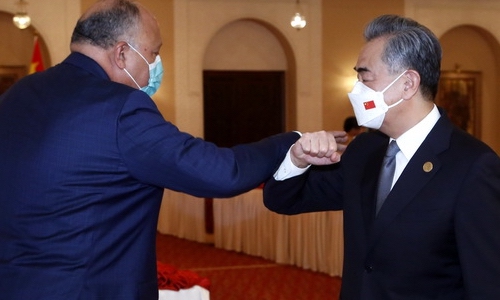China, India stress managing border dispute, urge Ukraine peace and dialogue during Wang Yi's visit
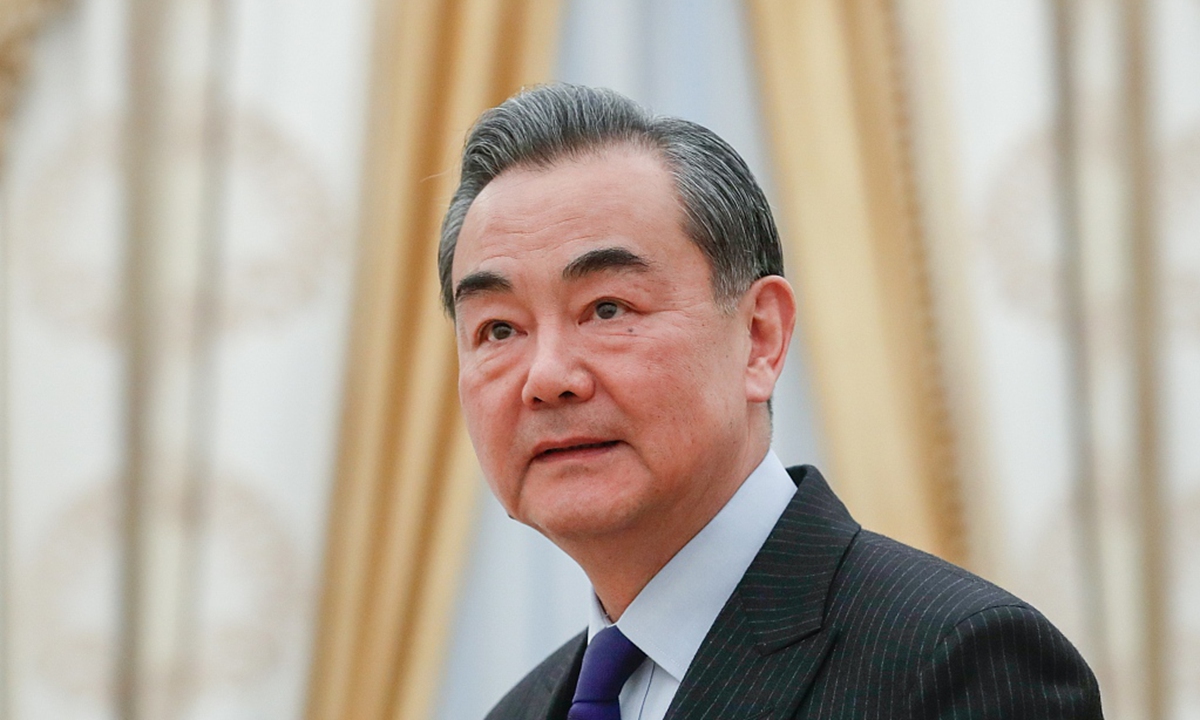
Chinese State Councilor and Foreign Minister Wang Yi. Photo: VCG
China and India, two major developing countries and emerging economies, should stick to their own development paths and join hands to safeguard peace and stability in the region and the world, Chinese State Councilor and Foreign Minister Wang Yi said on Friday during a visit in New Delhi, stressing the two sides should place the border issue in a proper position in bilateral relations and manage conflicts to facilitate the development of relations.
Wang proposed a three-point approach to achieving that end - both sides should view bilateral relations with a long-term vision, see each other's development with a win-win mentality, and take part in the multilateral process with a cooperative posture.
Wang, the highest-level Chinese official to visit India since the border clashes at Galwan Valley, made the remarks during his meeting with Indian National Security Advisor Ajit Doval.
Wang said during his meeting with Indian External Affairs Minister Subrahmanyam Jaishankar that as mature and rational major developing countries, China and India should not let the border issue define or affect the overall development of the bilateral relationship.
China and India should support each other, not consume or exclude each other. The two sides should manage and control differences, and facilitate the development of bilateral relations, Wang said.
Jaishankar said that since last year, India and China have maintained effective diplomatic and military communication. After several rounds of military commander-level talks and border affairs mechanism meetings, troops of the two sides have achieved disengagement in most areas of the western sector of the border, and the disengagement in the remaining areas should be completed as soon as possible.
The two sides also discussed COVID-19 control, the Ukraine crisis and Afghanistan issue, and jointly expressed concerns over the unilateral sanctions' impact on the global economy and security of the supply chain.
Though Wang and India leaders discussed a broad substantive agenda, Indian media coverage of Wang's talks with the Indian leaders focused heavily on border clashes.
Zhao Gancheng, a research fellow at the Shanghai Institute for International Studies, told the Global Times on Friday that although China is willing to downplay the conflicts and ease tensions, to what extent India will meet China halfway is uncertain.
Zhao also noted the US' role of drawing discord between China and India by demonizing China as a security threat and making China the target of the QUAD mechanism.
Shelving differences and seeking common ground have always been China's diplomatic philosophy, and Qian Feng, director of the research department at the National Strategy Institute at Tsinghua University, noted "bilateral relations should not be pinned only on the border issue."
Then Indian PM Rajiv Gandhi's visit to China was deemed a groundbreaking moment in bilateral relations.
Time has changed since the pre-1988 era and both sides have seen tangible benefits through a stable and positive relationship, on trade in particular. The two should not go back to the track before 1988 when the border issue dominated, Qian said.
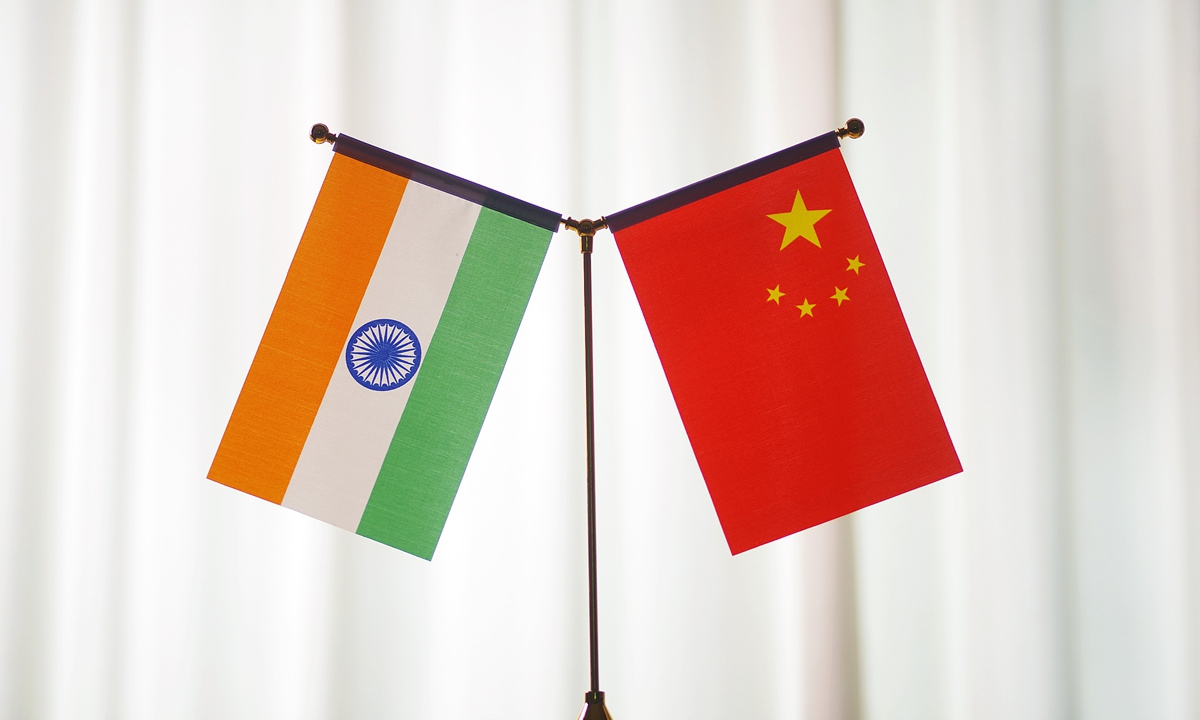
China India Photo:CFP
Roles in intl affairs
India's strength, self-confidence and international status have developed enormously, Qian said, noting China-India relations have gone beyond the bilateral level with great international implications.
Wang said during his meeting with Doval that China never seeks a single-polar Asia, but respects India's role in the region and looks forward to a "China-India plus" model in South Asia to realize positive engagement and higher-level, more extensive win-win results.
Predicting border clashes will remain a rocky point for a while, Zhao said similar stances on the Ukraine crisis of China and India opened a window for the two neighbors to adjust their relations, hopefully downplaying conflicts and maximizing common interests.
The US has stepped up courting India against Russia. A Pentagon official provided lip service by promising oil and military equipment to India, and heightened pressure on India by criticizing New Delhi for "sitting on a fence," plus mobilizing its QUAD ally Japan to lobby India to change its stance.
But India has a very consistent stance on the issue. As Indian TV anchor Arnab Goswami said, India is not a satellite state of the US.
"You [US] have no position to lecture us on human rights. You are the worst perpetrator of atrocities," Goswami said, citing US invasions in Iraq, Libya, Syria, Yemen, Somalia and Niger.
The Ukraine crisis prompted India to reconsider its relationship with the West and calls for joining forces with developing countries have emerged within India.
Experts stressed that China and India should grasp the opportunity to enhance coordination in multilateral and international occasions and jointly play positive roles in international affairs, especially in the Ukraine crisis and Afghanistan issue.
India "is not alone" in developing normal relations with Russia, and it is possible that China and India can develop political mutual trust, which was eroded due to border conflicts, by jointly playing constructive roles in mediating the Ukraine crisis and addressing the humanitarian crisis in Afghanistan, Qian said.
Cooperation on international occasions can create benign conditions for solving bilateral problems, the expert said.
Zhao cited various platforms that China and India could use to seek common ground on those issues, including the China-Russia-India summit which China is next to host, and the BRICS mechanism.
As Wang Yi said, global governance is to enter "Asia time." It is Beijing's turn to hold the BRICS summit later this year and India will host the G20 summit and Shanghai Cooperation Organization summit in 2023.
As the world enters a new period of turbulence and change, China and India should strengthen communication and coordinate positions, safeguard their legitimate interests and the common interests of developing countries, and make their respective contributions to promoting world and regional peace and stability, Wang said during his meeting with Jaishankar.

